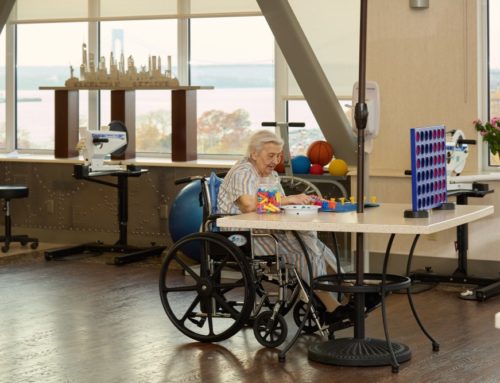Improper thyroid functions are known to cause mental health issues, including anxiety, restlessness, and memory problems. They also cause difficulty with mental clarity, focus, and sleep, though no two people experience identical symptoms. Though concerning, long-term hypothyroid problems may cause neurological conditions, such as stroke or mental decline. The best way for you to avoid these issues is early detection.
Proper treatment for neurological diseases is crucial to manage the symptoms of hypothyroidism. These could include restorative therapy, medication, psychological support, and stress management to prevent complications. Discuss any possible treatments with your medical team and follow their advice. Let’s take a closer look at the neurological issues caused by an underactive thyroid.
Common Neurological Conditions Caused by Hypothyroidism
For some, feeling under the weather is an early sign of hypothyroidism. Fatigue, sensitivity to cold, a hoarse voice, and muscle cramps may occur. Though uncomfortable, the neurological issues are often much worse.
As well as confusion, slowed speech, and reduced blood flow, you may experience anxiety and depression. You may even develop psychosis, or a brain disease called encephalopathy.

Long-term hypothyroid issues may even result in a stroke or cognitive decline, which we’ll discuss more below.
Risk of stroke
One possible hypothyroid neurological condition is the risk of a stroke. Hypothyroidism often causes high levels of the amino acid homocysteine, which may increase the risk of strokes. In fact, 12% of individuals with acute ischemic strokes or transient ischemic attacks had thyroid issues.
The medication used to treat an underproducing thyroid may be part of the problem. For instance, doctors often over-treat those with thyroid cancer, giving them extra hormones. Though it helps with their hypothyroid symptoms, the excess may lead to a stroke.
Cognitive decline
Cognitive decline is another concerning condition to consider if your thyroid isn’t doing its job. In fact, 81% of those aged 65 years or higher with hypothyroidism have a higher risk of dementia. If you’ve required thyroid hormone replacement treatment, the risks are three times higher.
When your brain lacks thyroid hormones, other cognitive functions are also affected. You may notice issues with mood, concentration, speech, critical thinking, and memory. If you have concerns about cognitive decline, speak to your doctor as soon as possible.
How stress management can help
Dealing with thyroid disease isn’t easy, even with mild symptoms. Adding hypothyroid neurological conditions to the mix causes higher levels of anxiety and stress. Though medication and rehab therapies may help manage your symptoms, reducing stress is essential for improving hormonal imbalances.
One way to lower stress is to maintain your physical health. Regular exercise, meditation techniques, and healthy meal planning should all be part of your routine.
Relaxing activities or hobbies are also fantastic additions to your day. These include reading, watching movies, listening to music, playing games, or taking a calming bath.
Don’t bottle up your feelings when anxious or stressed. Discuss your concerns and fears with family, friends, and your medical team. You shouldn’t be afraid to ask for help or support when needed. You can also ask for space if you’re feeling overwhelmed and need a few minutes to yourself.
Resources:
https://www.hopkinsmedicine.org/health/conditions-and-diseases/hypothyroidism#:~:text=Hypothyroidism%20is%20the%20most%20common,not%20make%20enough%20thyroid%20hormone
https://medlineplus.gov/ency/article/007456.htm
https://www.ncbi.nlm.nih.gov/pmc/articles/PMC4480949/
https://www.semanticscholar.org/paper/Neurological-Complications-of-Hypothyroidism-T%C3%BCrker-Turker/03d86d0a93fe8d1b102b6180e526aec146ecdc93
https://pubmed.ncbi.nlm.nih.gov/16734043/
https://www.thyroid.org/patient-thyroid-information/ct-for-patients/november-2021/vol-14-issue-11-p-7-8/
https://www.neurology.org/doi/10.1212/WNL.0000000000200740
https://www.btf-thyroid.org/coping-with-the-psychological-symptoms-of-thyroid-conditions
https://www.ncbi.nlm.nih.gov/pmc/articles/PMC4264616/
This content comprises informative and educational resources only and can not be considered as a substitute for professional health or medical guidance. Reliance on any information provided in this article is solely at your own risk. If you have any inquiries or apprehensions about your medical condition or health goals, talk with a licensed physician or healthcare provider.






Leave A Comment